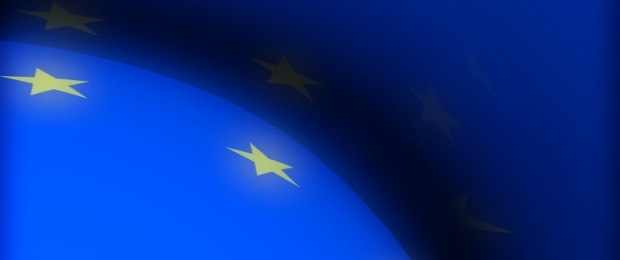
Europe's new political flexibility
First Joschka Fischer and then Jacques Chirac have sought to frame the terms of the debate on the future of the EU. Mr Fischer's "centre of gravity" and Mr Chirac's "pioneer group" are the subject of earnest discussion in think-tanks, foreign ministries and newspaper columns. They have succeeded not only in making people think about the institutional consequences of enlargement, but also it seem - in reasserting the claims of France and Germany to lead the EU.
It is undoubtedly true that Paris and Berlin, after a couple of years of strained relations, have worked hard to forge a common agenda for the current inter-governmental conference (IGC). They have ensured, for example, that the IGC will tackle "flexibility" (also know as "enhanced co-operation").
As far as large sections of the British press are concerned, an old pattern is being repeated. France and Germany call the shots and Britain has to choose between accepting their flawed designs for ever-closer union - or standing alone in splendid isolation.
However, this picture is grossly exaggerated and misleading. IN recent years, EU power politics has become more open and diversified. It is true that for decades there was a boringly repetitive pattern. Leader from Paris and Bonn would meet to hammer out common proposals for further European integration. When reacting to such schemes, the British government would stress that they were mostly hot air, probably unworkable and that in any case British priorities were different.
The other European governments, in contrast, nearly always followed the Franco-German lead. Despite reservations about particular aspects of the Paris-Bonn agenda, countries such as Italy, the Netherlands and Spain usually gave their assent, They reasoned that, in the last analysis, a franco-German Europe was better than no Europe at all. This trend confirms the British suspicion that EU integration was something thrust upon them, rather than a process they could help to shape.
But the truth is that France and Germany can no longer exert leadership across the whole spectrum of EU politics. This is because the last EU enlargement brought in countries such as Sweden, which do not believe that EU integration is, in itself, a worthy political objective, Furthermore, Tony Blair's more constrictive attitude towards the EU has helped to make Britain a serious player in EU politics.
But perhaps the most important factor has been the EU's expansion into new policy fields. Issues such as foreign and security policy, defence cooperation, justice and home affairs and economic reform are not as dominated by France and Germany as - for example - the EMU debate once was.
It is striking how all EU member-states have become more "promiscuous" in forming alliances inside the EU. Strategic alliances such as that between France and Germany still have their value. But increasingly, who teams up with whom depends on the subject in question. For example at last March's Lisbon economic summit, Britain worked closely with Spain, Italy, the Netherlands and Portugal to push through a raft of liberalising measures. On defence, Britain and France have set the direction go the "St Malo initiative". The biggest push to beef up the powers of the euro-11 committee has come from France, Belgium and Italy, while Germany and the Netherlands remain cautious about building it into an institution. On other dossiers, such as they withholding tax or energy liberalisation, the coalition patterns are different again.
This diversification of EU politics should be welcomed. For the EU will surely work better if it can draw upon the relative strengths and expertise of varying groups of member-states to give a lead in different policy areas.
The EU's expansion to 27-plus member-states means that more "flexibility" in institutional structures is inevitable. Of course, all member-states should accept the acquis communautaire - even if East Europeans will be temporarily excused from parts of it. But leadership and innovation in new areas of policy will, increasingly, depend on smaller groups of countries rather than the full complement of EU members. Not every country will wish to, or be allowed to, take part in every policy area.
European leaders should recognise this new pluralism and accept its implications. Coalitions of the willing and able should have the opportunity to agree on closer co-operation within the treaty framework. The EU should therefore scrap the existing "emergency brake" - the provision of the Amsterdam treaty which allows any country to veto a group moving forwards with enhanced cooperation
Britain opposes lifting the emergency brake in the current IGC. But far from fearing the greater flexibility, the British government should embrace it. The government could play a key role in many areas of enhanced cooperation - especially if it joined the euro. If the British refuse to lift the brake, they may well increase the probability of flexibility happening outside the treaties - and possibly in the form that Mr Blair fears most.
It would be ironic if, just when EU politics is opening up, British obstructionism helped to created the very situation that Eurosceptics love to hate: sustained Franco-German leadership over core Europe. The best way for Tony Blair to avoid this scenario is to be bolder on the euro and more flexible on flexibility.
